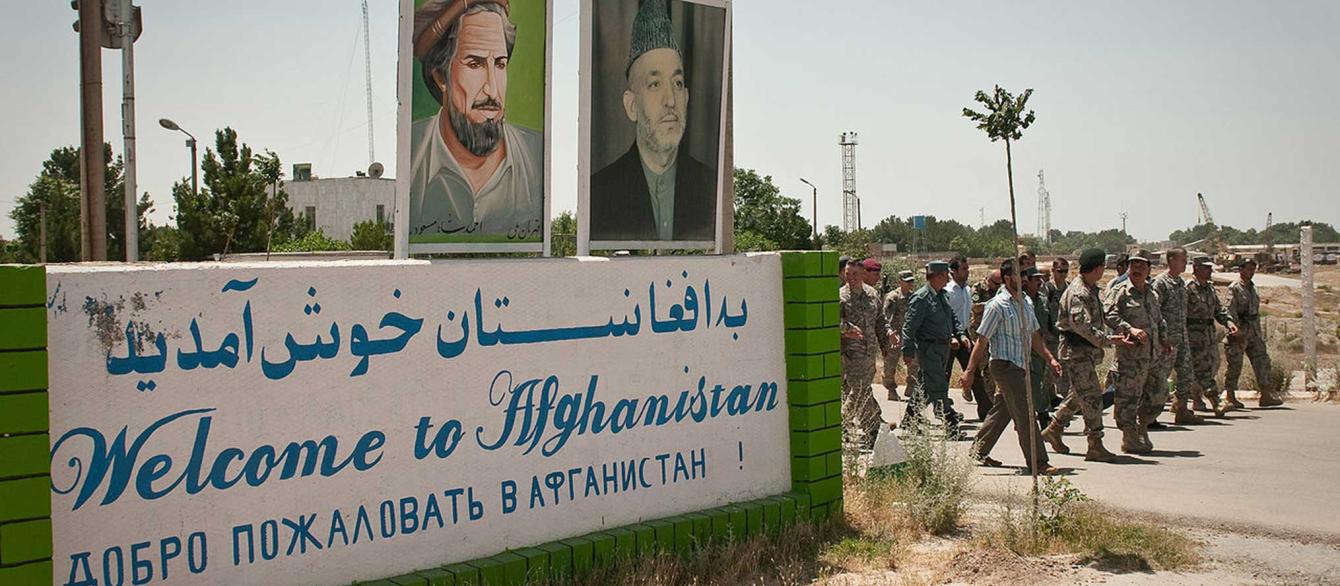The latest news out of Afghanistan evokes feelings of déjà vu. When the Obama administration announced the withdrawal of U.S. troops in 2014, the decision caused panic among the local population, especially ethnic minorities such as Hazaras, Tajiks, and Uzbeks, who feared they would again be targeted by the Taliban. Afghan generals were pessimistic too. They expected the Taliban would take over the country as soon as the foreign forces departed. Women feared that all the gains achieved since 2001 would be lost, sentiments shared by human rights activists. Afghans did not particularly like the presence of the coalition forces or international organizations but admitted they would rather live under “foreign occupation” than under the Taliban. The atrocities committed were still fresh in their minds.
That was eight years ago. Now the Biden administration has announced that by August 31, 2021, all troops will have been withdrawn. As predicted, the Taliban are on a strategic offensive, taking over townships, controlling key transportation routes, encircling Kabul and provincial capitals, and causing an unprecedented loss of morale in the Afghan military and police. The Taliban already trumpets victory in pushing foreign forces out of Afghanistan.
UN leaders are pleading with the international community to continue supporting Afghanistan. There is a growing consensus that Afghanistan will descend into chaos in the coming months and bring on a humanitarian crisis of great scale. Tajikistan has already reported crossings of deserting Afghan troops, with more than a thousand claimed to have fled to Tajikistan on July 4 alone.
All five Central Asian states already host hundreds of thousands of Afghan refugees who have fled the war. Some have become citizens of these countries, while others remain refugees. Many more remain undocumented.
From June 27 to July 4, Uzbek Foreign Minister Abdulaziz Kamilov visited Washington, D.C., where Afghanistan is high on the agenda. President Biden has reportedly asked Uzbekistan, Tajikistan, and Kazakhstan to temporarily host 9,000 Afghans who worked for U.S military forces and could face persecution by the Taliban. These Afghans are in the process of applying for U.S. special immigration visas. Uzbekistan reportedly is already preparing for an influx of Afghan refugees, particularly from the northern regions, where the Taliban has been surprisingly effective in seizing territory. A “reception center” of 80 large tents, erected in the border town of Termez, may be the result of talks in Washington, D.C.
All five Central Asian states already host hundreds of thousands of Afghan refugees who have fled the war. Some have become citizens of these countries, while others remain refugees. Many more remain undocumented. Millions have also fled to Iran and Pakistan. The United States and Canada, also choice destinations, are harder to reach; many have also fled to Europe. Turkey, seen as a transit point towards a more attractive Europe, is becoming increasingly favored due to the relative ease of attaining permanent residence or citizenship through investment.
I left Afghanistan in 2013 after serving as a political officer of the United Nations Mission in Afghanistan (UNAMA). Since then, many of my local colleagues have left for other countries. Those who remain are now anxiously packing their bags. One former colleague traveled ten hours by road to Kabul last week to prepare to relocate his family to Turkey. A dozen of his friends recently emigrated there. He said the emigration rate is so high, it can take three months for Turkish visa applications to be processed. Other embassies are similarly overwhelmed.

The flag of the United States flies over Bagram Air Base in Afghanistan on June 25, 2021.
All my Afghan contacts agree that a power struggle will occur between the government forces and the Taliban before any rebuilding process can start, if at all. Rebuilding requires peace, capacity, and skilled people, almost all of which are now hemorrhaging from the country.
The government will try to cling to power, but it will not last for long. Many believe there are Taliban supporters within the administration and in the army. The Taliban is better equipped and supported by Pakistan’s army, so the current government will not be able to show much resistance, they say.
Three possible scenarios following the U.S. withdrawal are now being discussed:
- The Afghan government will manage to keep control of the central government by enlisting the collaboration of warlords, and will repel or contain Taliban forces.
- The Afghan government will negotiate a peace agreement and power-sharing arrangement with the Taliban leaders who were part of the Doha Process initiated by the Obama administration to bring the Afghan government and the Taliban to the negotiating table. It did not happen until February 2019 and the talks were suspended after six months.
- Warlords will directly contest the Taliban, further dividing the country and deepening the chaos.
The third scenario—the most-feared and the scariest—also seems the most realistic. If it materializes, then apart from the refugee crisis, the Central Asian countries may face serious threats to their security. The Taliban may find sympathizers among Central Asians who traveled to Syria to join ISIL. The region’s disenchanted youth, especially those who received an Islamic education, may also find inspiration in the movement. Therefore, the region and the international community should hope for the best but prepare for the worst.
Efforts to this end are already underway. The United Nations Center for Preventive Diplomacy in Central Asia (UNRCCA) has launched meetings among foreign ministers of the Central Asian countries, and these should continue to facilitate coordination and early warning of potential crisis. The Collective Security Organization, the Shanghai Cooperation Organization, and the Organization for Security and Cooperation in Europe have security in Central Asia as part of their mandate and should play a constructive role. The international community will need to press hard for the inclusive reform and rebuilding of Afghanistan to avoid a major crisis that spills well beyond the Afghan borders.




